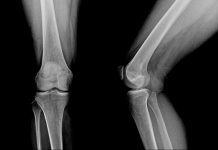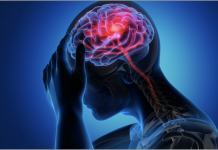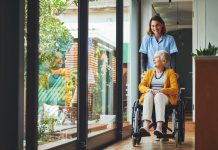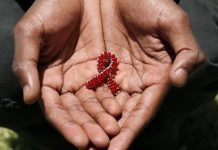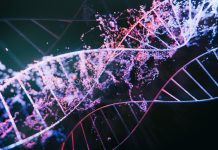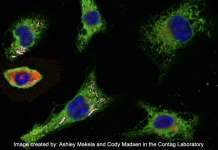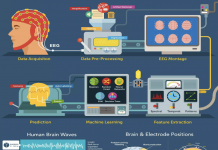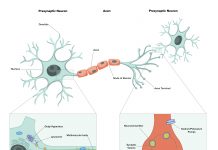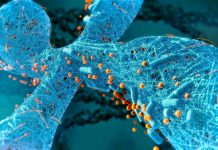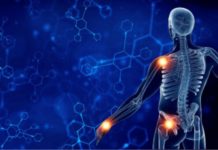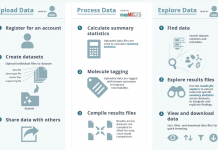Open Access Government produces compelling and informative news, publications, eBooks, and academic research articles for the public and private sector looking at health, diseases & conditions, workplace, research & innovation, digital transformation, government policy, environment, agriculture, energy, transport and more.
Home 2024
Archives
Medical abrasion phenomenon as a cause of knee osteoarthritis
Professor Shaw-Ruey Lyu from Tzu-Chi University tells us how the discovery of the medial abrasion phenomenon, as a cause of knee osteoarthritis, has changed how it is best treated.
A guide for occipital neuralgia patients
Giorgio Pietramaggiori, MD, PhD and Saja Scherer, MD, from the Global Medical Institute, help us to understand occipital neuralgia in this detailed patient guide.
Navigating health autonomy through self-care
Interest in self-care has exploded in recent years, highlighting its crucial role in shaping future healthcare systems. Imperial SCARU’s Dr Austen El-Osta discusses emerging trends, research priorities and self-care policy landscapes, advocating for a global movement towrds accessible and empowered health management.
Ageism, gerontological nursing and healthcare contexts
Professors Kathleen Hunter and Sherry Dahlke from the University of Alberta’s Faculty of Nursing explain why gerontological nursing education is key to addressing the unconscious negative stereotypes about ageing and improving care for older adults.
Collaborative governance on big health problems in developing countries
Collaborative governance research may help tackle big health problems in developing countries, says Michael P. Ryan. Here, he explains how.
What we need to know about urinary incontinence
Christopher Jayne, MD, FACOG, URPS, MIGS, Director from Greater Houston Urogyn, walks us through what we need to know about urinary incontinence, including comment on bladder injury research.
Who will staff the psychedelic resurgence?
Who will staff the psychedelic resurgence? Erika Dyck, Professor and Canada Research Chair in History of Health & Social Justice from the University of Saskatchewan, provides an intriguing answer to this question.
Leveraging exercise mimetics as potential therapeutics
Robert Wessells, Associate Professor at Wayne State University, explores whether identifying potential exercise mimetics can deliver the benefits of exercise to patients with reduced mobility.
Meteorological data for public health surveillance
Michael Wimberly, Professor from the University of Oklahoma, walks us through integrating meteorological data for public health surveillance and disease forecasting.
Eye health: Understanding childhood myopia
Professor Nicola Logan, Professor of Optometry & Physiological Optics at Aston University, helps us to understand childhood myopia (short-sightedness), stating that early management in this vein is crucial for eye health.
Vaccine non-responders and severe adverse events
Eyer Klaus, an Associate Professor at Aarhus University’s Department of Biomedicine, explores the causes, impact, and potential resolutions of vaccine non-responsiveness and severe side effects.
Engineered endosymbionts as novel cancer therapeutics
Satyajit Hari Kulkarni and Christopher H. Contag from the Institute for Quantitative Health Science and Engineering focus on engineered endosymbionts, which they argue is a paradigm shift in anticancer bacteriotherapy toward killing tumors from the inside out.
Bridging brain barriers for gene therapy
Reflecting on the challenges in treating brain diseases, this article explores ways to transduce the blood-brain barrier as well as the critical role of tanycytes as a target for gene therapy vectors.
AI healthcare research: Pioneering iSMART Lab
Dr Narges Armanfard, Professor, talks us through the AI healthcare research at McGill University which is spearheading a groundbreaking initiative – the iSMART Lab.
Contribution of oxidative stress to neurodegenerative disease
Paul A. Hyslop, from Arkley BioTek Indianapolis, details an ongoing specific research approach to identify, characterize, and validate physiologically relevant neuronal targets of H2O2 in designing therapeutics for neurodegenerative disease progression.
Internet-delivered cognitive behavioural therapy
Heather D. Hadjistavropoulos, Hugh C. McCall, and Jill A. B. Price, walk us through internet-delivered cognitive behavioral therapy tailored to public safety personnel.
Insights on metabolic health and reproductive wellness with Dr. Carol Elias
In this exclusive interview, Dr. Carol Elias simplifies the complex link between metabolism and reproduction, sharing insights into the science behind our physiological balance.
Decoding the patterns of spiderweb capitalism
Dr Kimberly Kay Hoang, the Director of Global Studies at the University of Chicago’s Department of Sociology, reflects on ‘spiderweb capitalism’ and her efforts to unravel opaque financial networks worldwide.
Revolutionizing pain medication: Preventing addiction and side effects
Stephen Vanner, president of pHarm Therapeutics Inc., and Christoph Stein, inventor and co-founder, discuss a new class of analgesics for pain caused by tissue injury and inflammation.
Data and specimen-sharing tools offer new discovery opportunities for ME/CFS researchers
Within the field of Myalgic Encephalomyelitis/Chronic Fatigue Syndrome (ME/CFS) research, two online tools: mapMECFS (Mathur and Carnes, 2021) and searchMECFS play a crucial role in advancing the understanding of ME/CFS by encouraging researchers to share and use data and biospecimens that are stored in centralized and easily accessible data portals.

